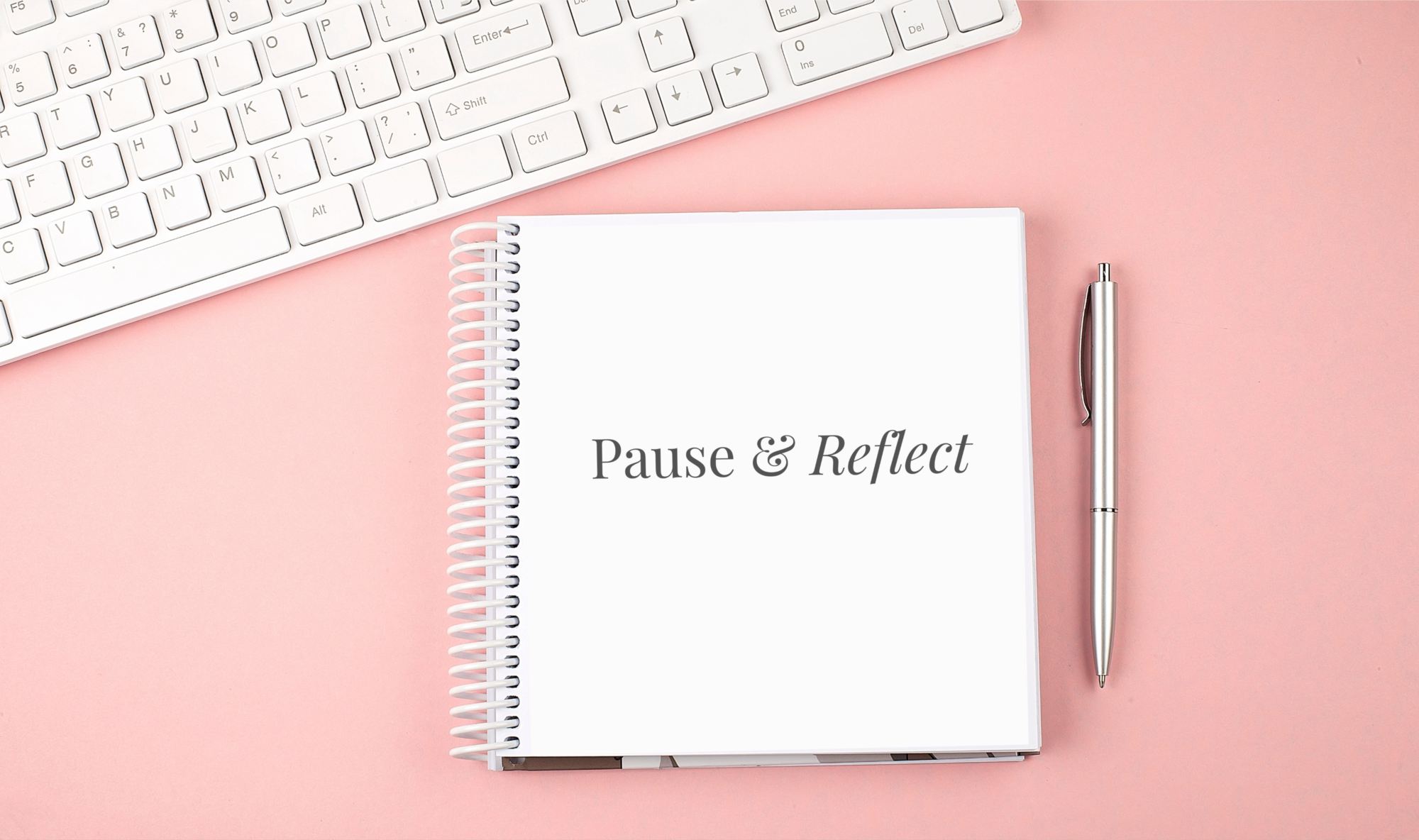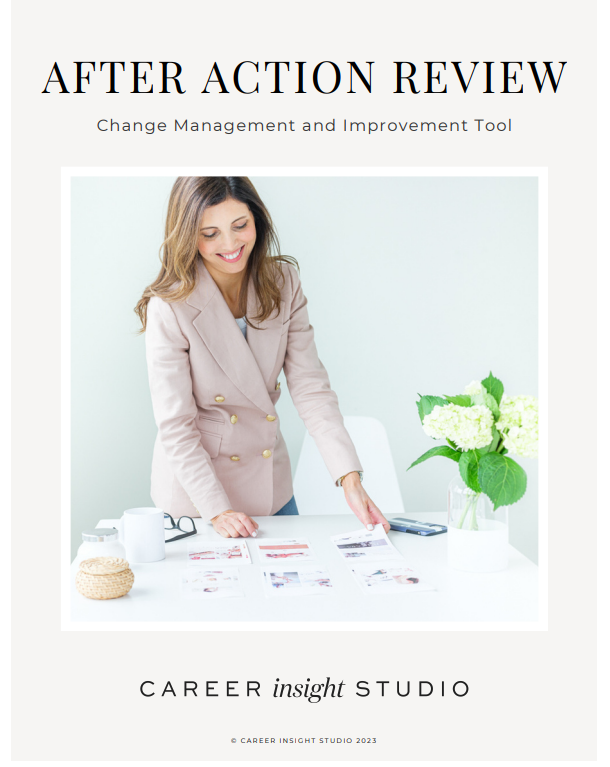An easy-to-use framework to help you reflect and capture learnings + improvement opportunities.

One of my favorite quotes of all time is from Maya Angelou “when you know better, you do better.” It’s like a permission slip you give to yourself. “I’m doing the best I can with the knowledge and skills I have right now. With more knowledge and experience, I can make more informed, thoughtful decisions.” One of the best ways to “know better” is simply by hitting the pause button and taking time to reflect.
There are so many benefits of reflection. So why don’t we do it? In today’s fast paced world, it’s like everyone’s racing in the Fast & Furious—except without the cool cars or dramatic music. We zip through tasks, meetings, and decisions at warp speed, barely pausing for a coffee break, let alone dedicate some quality reflection time. This high-speed chase often means we’re doing victory laps on the same old mistakes, missing the chance to toast our successes, or worse, not learning from our blunders.
Early in my career, I participated in countless postmortem meetings which often felt punitive. They were usually initiated when something didn’t go according to plan. The problem? No postmortem was the same and it was not always the most fun thing to be a part of. Years later, I discovered a different tool called the After Action Review. While it’s similar to a postmortem, I find the simplicity and the spirit behind it are much more effective. Even better, it’s something you can use in both your work and personal life to learn and improve just about anything.
How it Works
An After Action Review is like a team huddle after playing a game. It’s a time to think about how the game went – what worked well and what can be done better next time. Here are the four questions to ask:
1. What did we want to happen? This is like setting the rules for the game or deciding what the goal is. Before the game starts, you think about what you wanted to achieve or what the original goal was.
2. What actually happened and why? Now the game is over, and you’re looking back to see what happened. Did things go as planned? If not, why? This is like replaying the game in your mind and figuring out what was different from what you expected. This is also where you can note the things that went right! Again – it’s not all about fixing things that went sideways.
3. What can we learn? This is the part where you think about the lessons you can learn from what happened. It’s like understanding why you lost a point or what move helped you score. You capture what worked well and what didn’t.
4. What actions can you put in motion for next time? Decide what’s worth continuing (what worked) and what to try next time. The outcome? Now you have a plan to improve based on what you learned.
Free Template
Here’s a template to download to organize your thoughts and a guide on how to use it.
Tips for Facilitating a Positive After Action Review Session:
I’ve hosted and participated in many After Action Reviews. When done right, it can feel very therapeutic and productive for working teams. Here are tips for making it a positive experience if you are facilitating a session at work.
- Schedule the Meeting:
Schedule with the core team while insights are still fresh.
Reserve enough time for discussion and to hear all viewpoints. - Set the Right Tone:
Remind everyone of the meeting’s purpose for the right mindset.
Create a safe space for all input – the good, bad, and even the ugly.
Consider excluding the boss for free conversation. - Consider a Moderator:
If the topic could become heated.
If certain attendees might dominate the conversation.
If you prefer to take part rather than lead. - Prepare in Advance:
Get a running start by filling out known insights or soliciting input before the meeting. - Focus the Discussion:
Concentrate on key components to manage time together well.
Aim for the team to develop important improvement ideas/proposals. - Make It Enjoyable:
Celebrate positives, bring snacks, or schedule over lunch. - Share the Learnings:
Agree on how information will be shared for comfort and trust.
Post results in a common space for future reference.
Need Extra Support?
If you are trying to put more reflection time into your work and want to know how to host a session, I’m here to help. Book time with me here. I’m happy to walk you through the steps to confidently host a session yourself or be a moderator for you or your teams.
Thanks for reading!




This is very helpful, I think this can also be modified to have hard conversations with your spouse as well.